
Der Sänger Orpheus trauert um seine verstorbene Geliebte, Eurydike. Der Klang seiner Stimme rührt die Götter und sie erlauben ihm, Eurydike aus dem Reich der Toten zu holen, solange er sich auf dem Weg zurück nicht nach ihr umblickt. Doch Orpheus scheitert. Die Trennung ist unumkehrbar.
Claudio Monteverdis „L’Orfeo“ aus dem Jahr 1607 ist die erste vollständig erhaltene Oper. Sie dient als Grundlage für eine zeitgenössische Befragung des antiken Orpheus-Mythos um die (Ohn-)Macht der Kunst. In „M’Orpheo“ treffen Motive Monteverdis auf elektronische, technoide Klänge.
Die Rolleneinteilung in männliche Künstler und weibliche Musen auflösend, werden Konzeptionen von Geschlecht, Genialität und Schönheit auf die Probe gestellt.
Eine dionysische Expedition zum Ursprung des Musiktheaters.
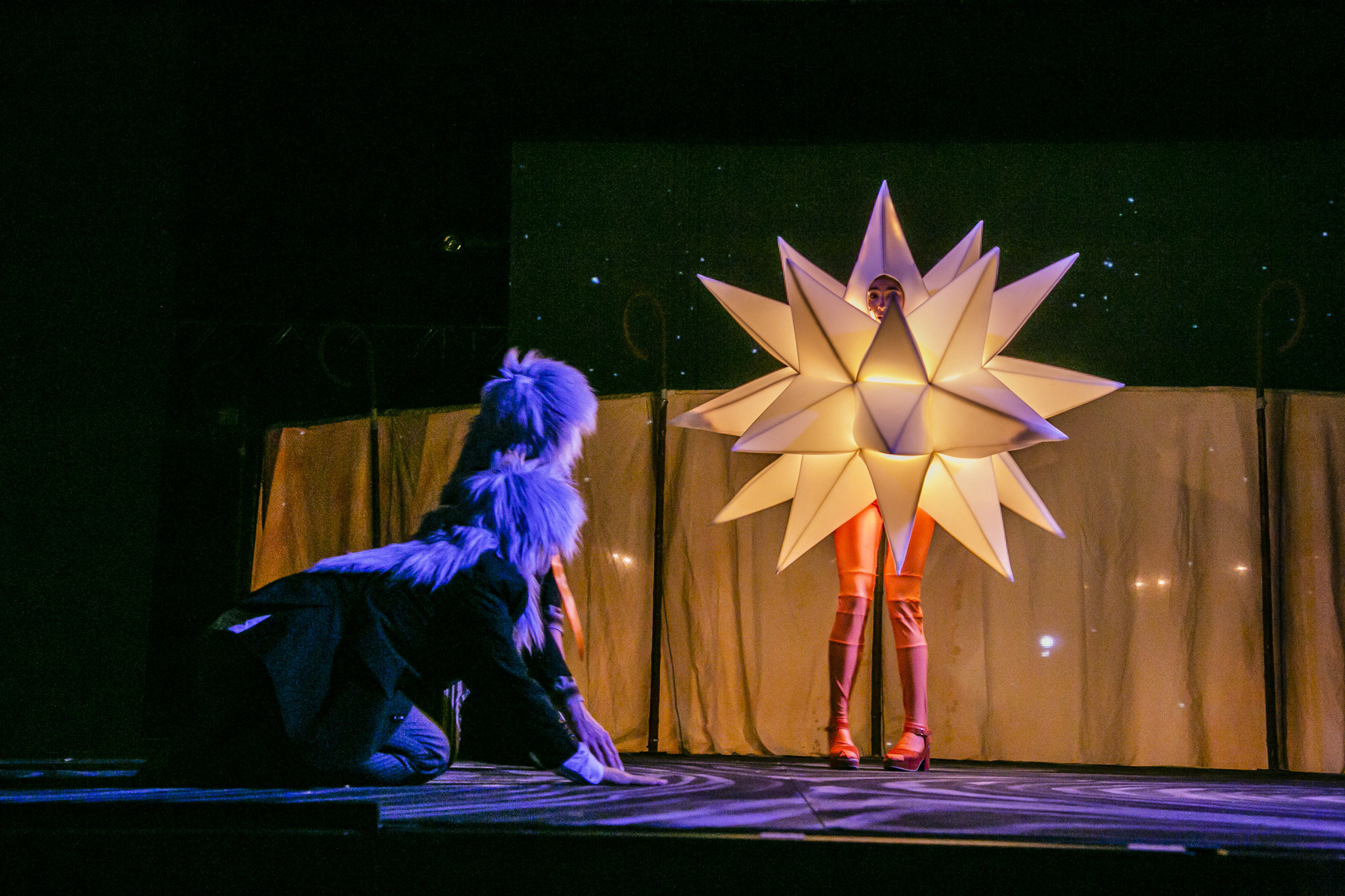

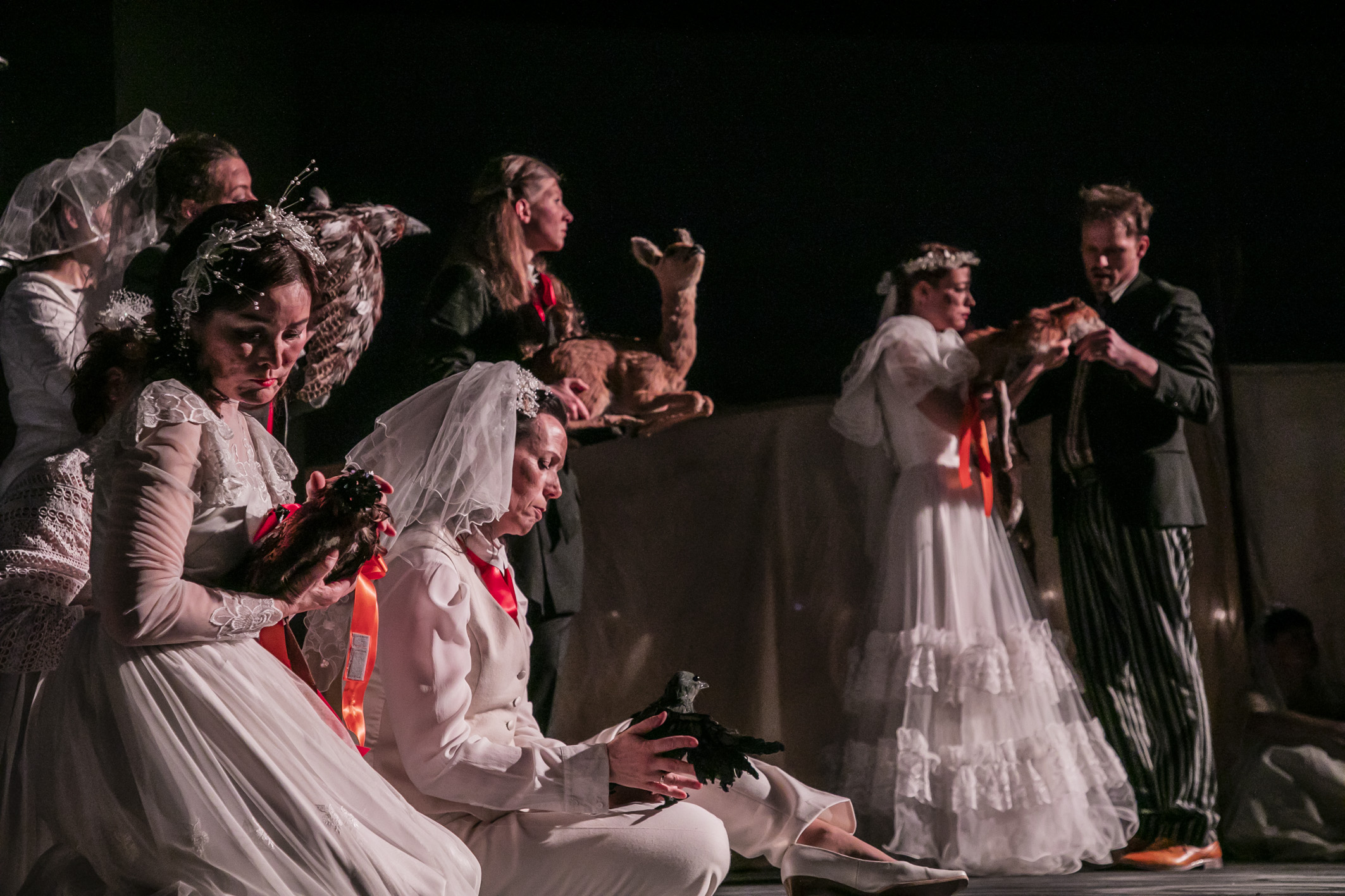
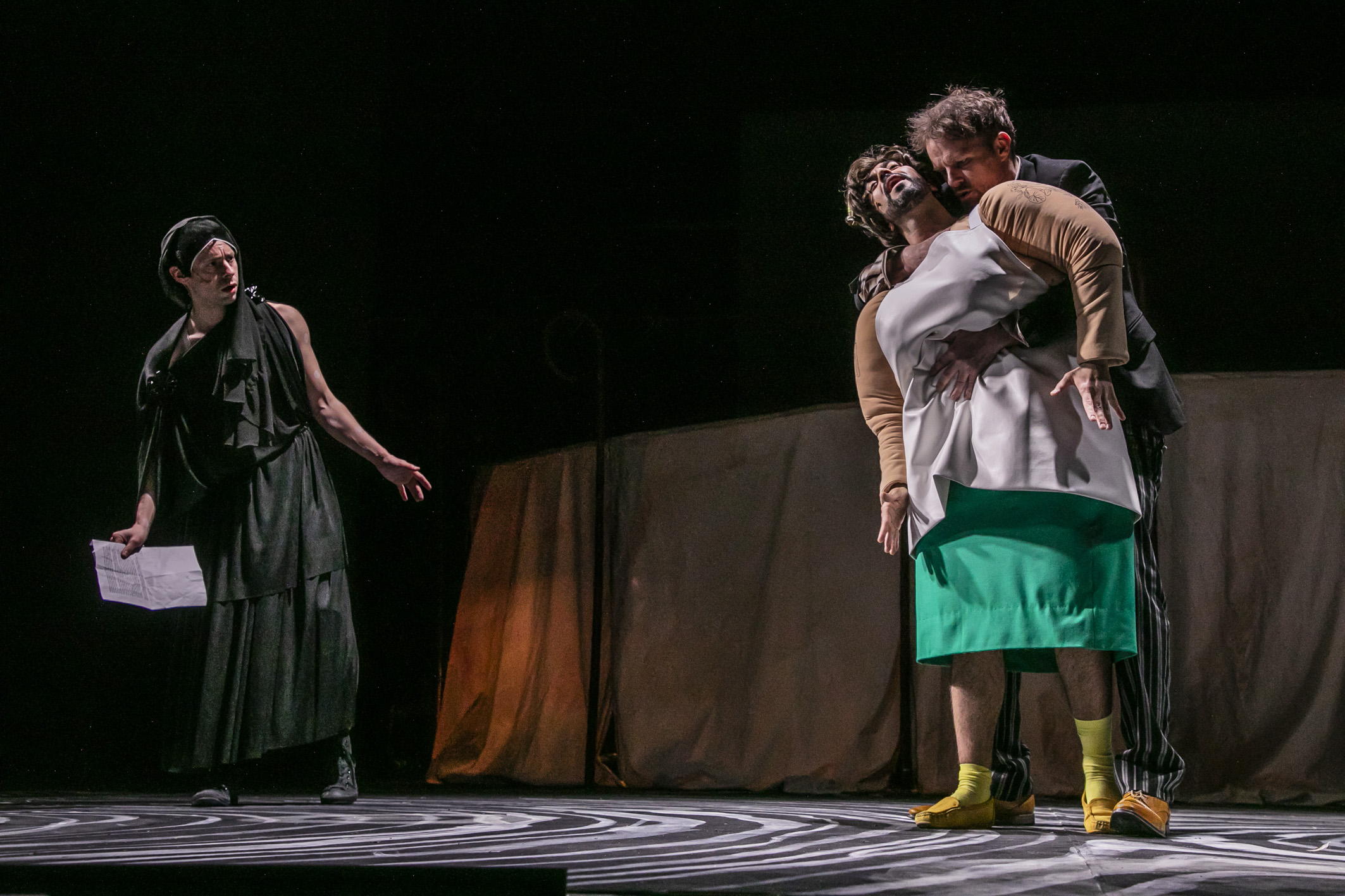
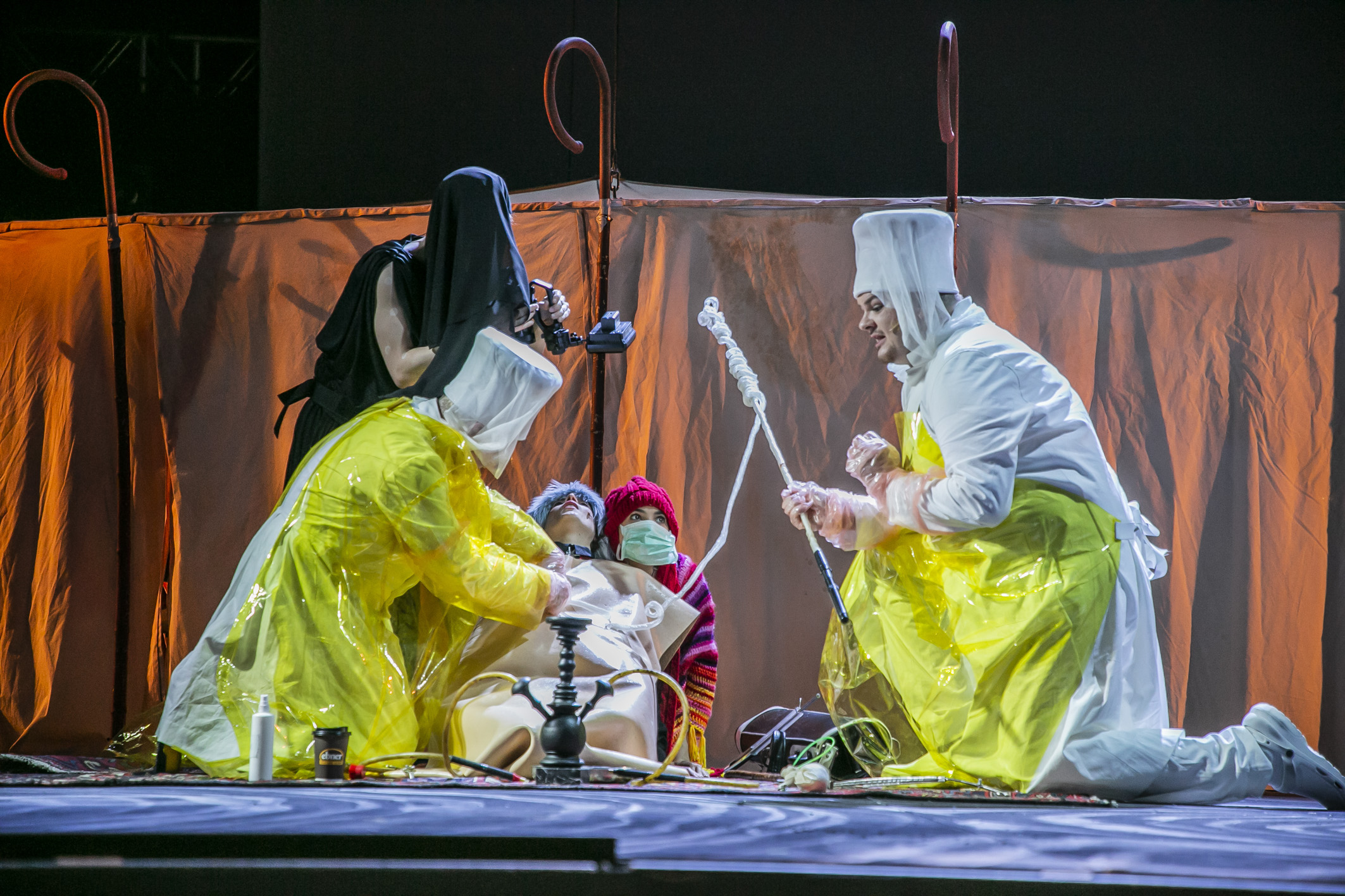
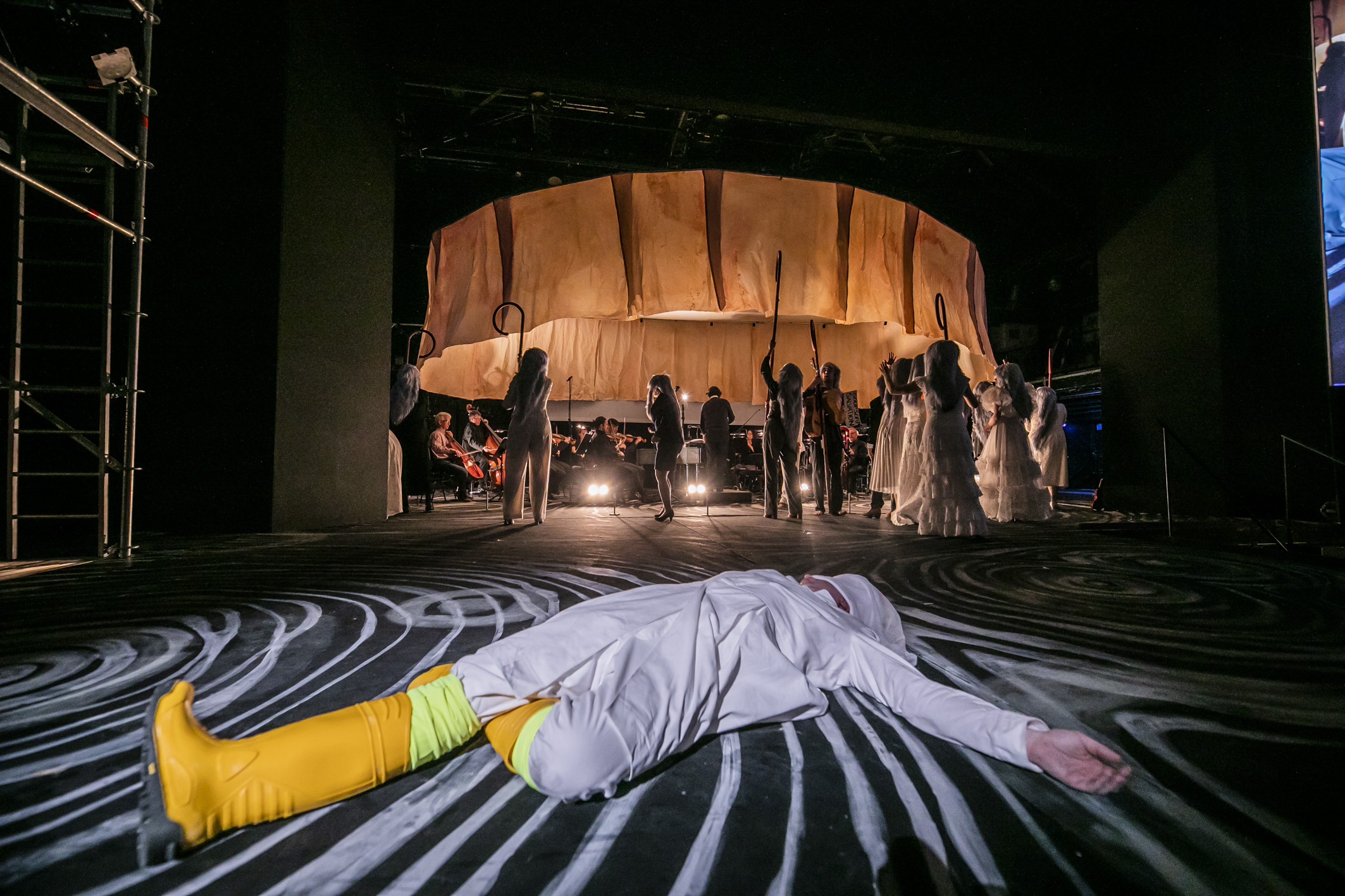
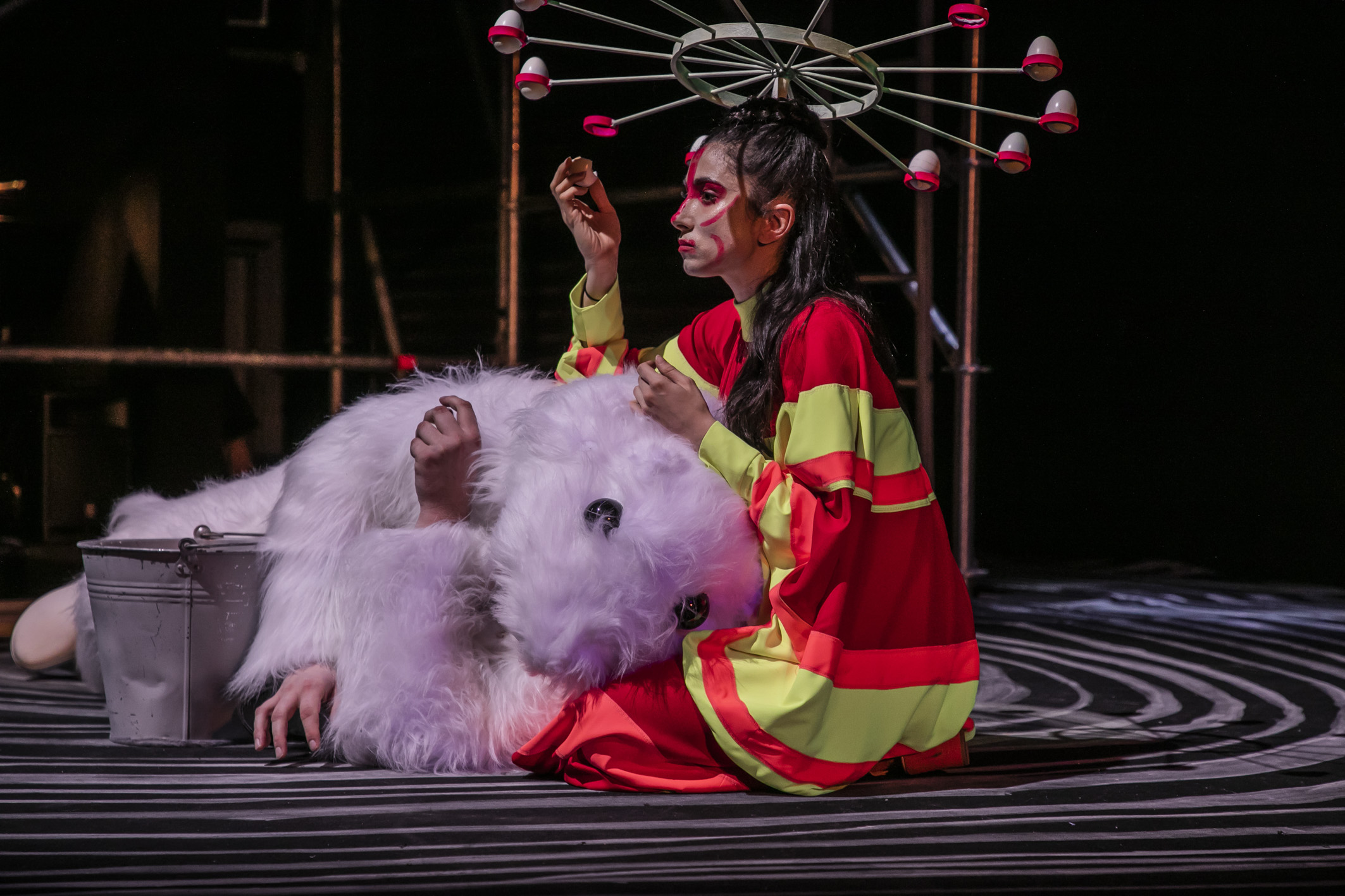
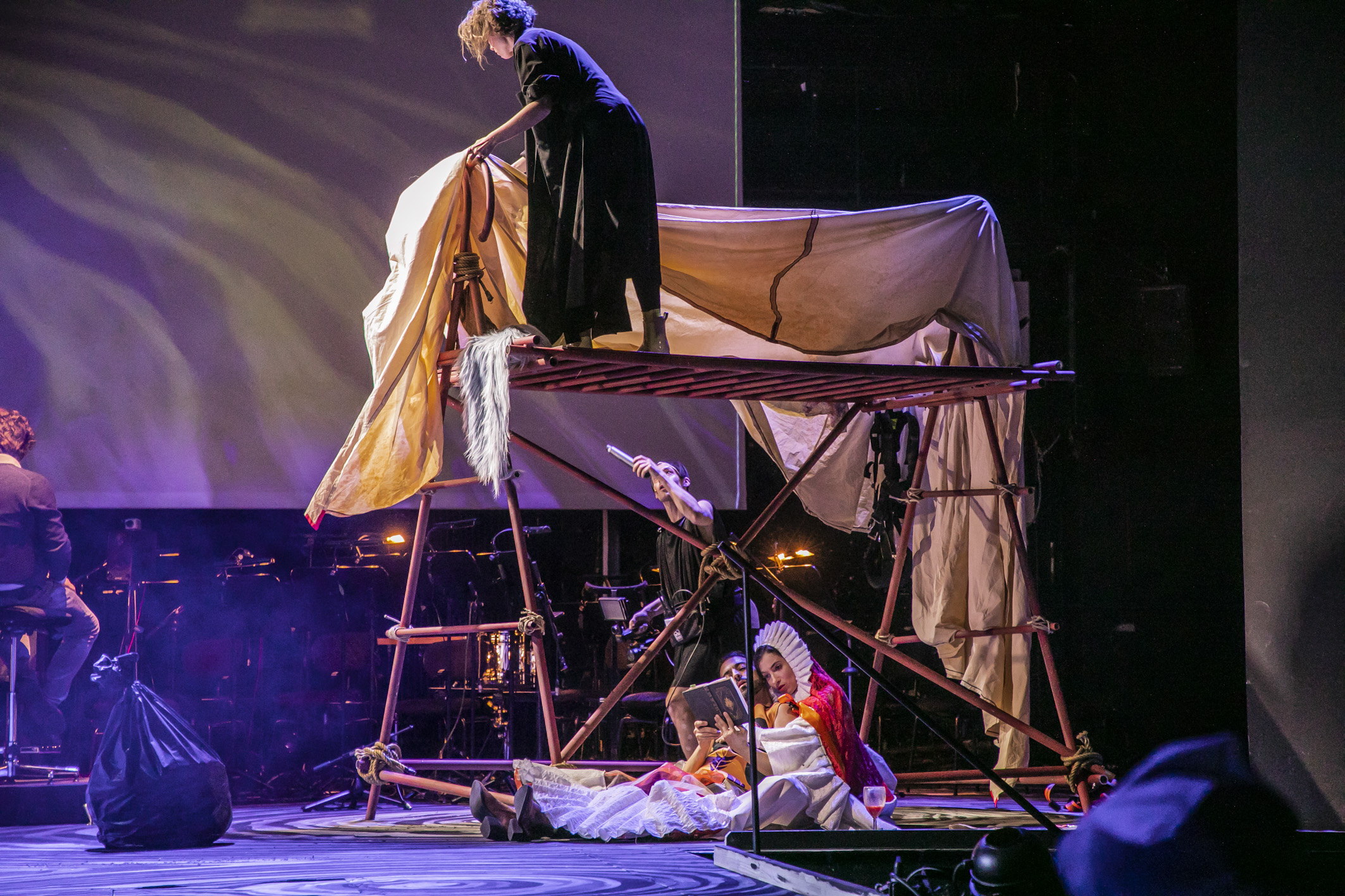
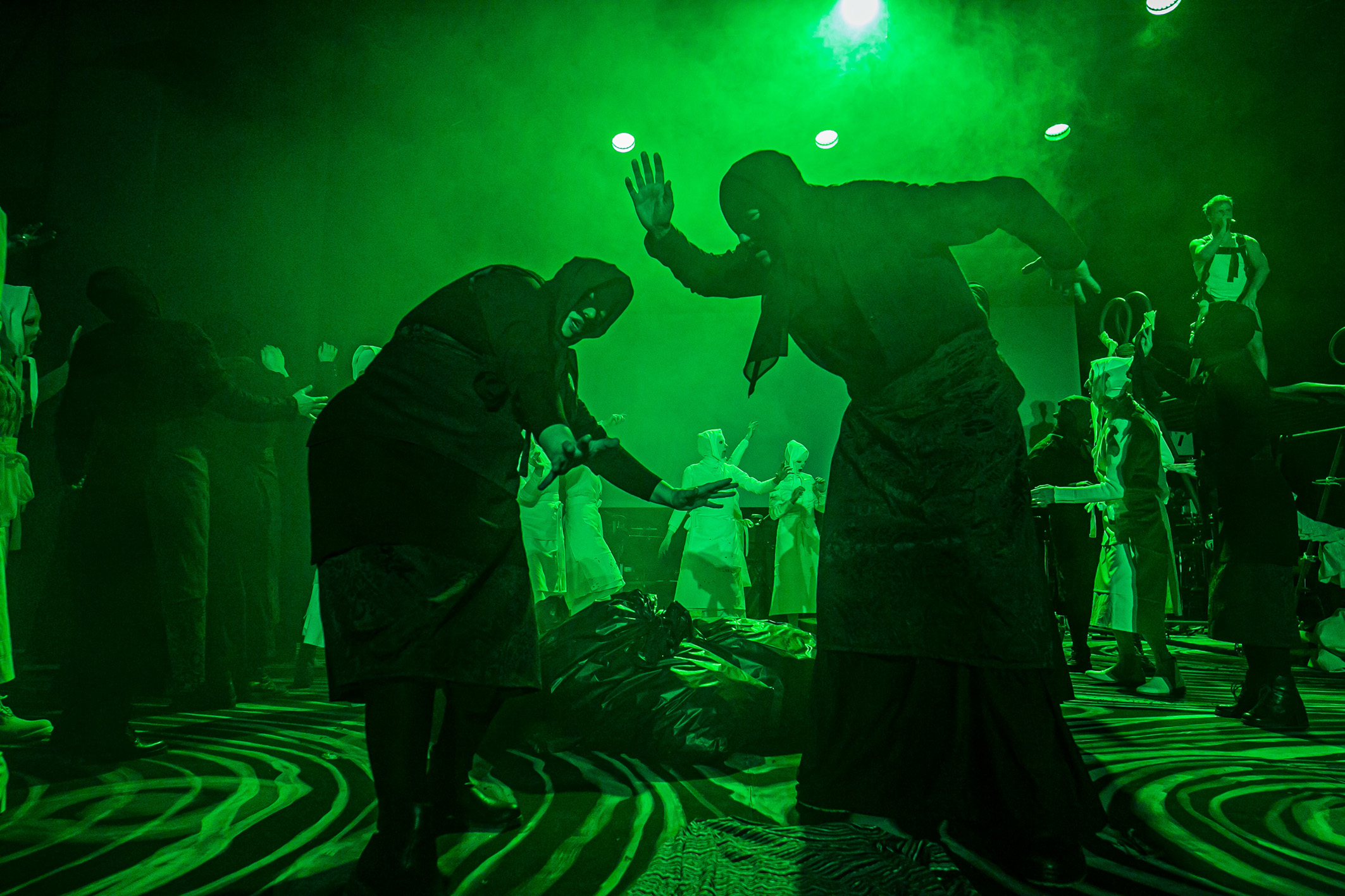


© Jochen Quast
| Cookie | Dauer | Beschreibung |
|---|---|---|
| cookielawinfo-checkbox-analytics | 11 months | This cookie is set by GDPR Cookie Consent plugin. The cookie is used to store the user consent for the cookies in the category "Analytics". |
| cookielawinfo-checkbox-functional | 11 months | The cookie is set by GDPR cookie consent to record the user consent for the cookies in the category "Functional". |
| cookielawinfo-checkbox-necessary | 11 months | This cookie is set by GDPR Cookie Consent plugin. The cookies is used to store the user consent for the cookies in the category "Necessary". |
| cookielawinfo-checkbox-others | 11 months | This cookie is set by GDPR Cookie Consent plugin. The cookie is used to store the user consent for the cookies in the category "Other. |
| cookielawinfo-checkbox-performance | 11 months | This cookie is set by GDPR Cookie Consent plugin. The cookie is used to store the user consent for the cookies in the category "Performance". |
| viewed_cookie_policy | 11 months | The cookie is set by the GDPR Cookie Consent plugin and is used to store whether or not user has consented to the use of cookies. It does not store any personal data. |